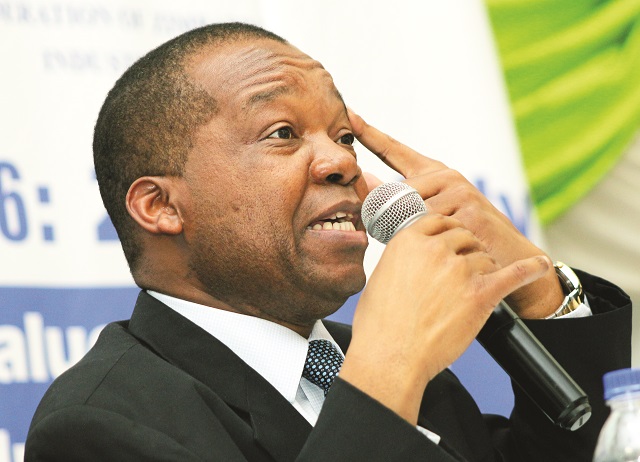RBZ works to boost diaspora remittances

Tinashe Makichi, Harare Bureau
The Reserve Bank of Zimbabwe has engaged a central bank from the region to help it set up a diaspora remittance system aimed at promoting sustainability of the sector, RBZ exchange control director Morris Mpofu has said.
“Diaspora remittances remain a critical source of liquidity in the market and the RBZ will continue to place effective systems to encourage use of formal channels by citizens living outside Zimbabwe.
“Therefore we’re currently working on setting up a diaspora remittances system and we’re in the process of engaging reputable institutions on the Sadc region in undertaking this project,” said Mr Mpofu but declined to mention the identity of the central bank.
It is estimated that about three million Zimbabweans are residing in the diaspora and there has been growing recognition that migration if managed properly can positively contribute towards national development.
The RBZ, however, has come up with several policy interventions aimed at enticing the diaspora to use formal channels in remitting funds back home.
He said remittances are a stable and significant source of external financing for developing countries, overshadowing official development assistance, private debt and portfolio equity.
India, Israel and Ethiopia have taken advantage of large inflows of remittance to issue diaspora bonds to raise project finance for public sector investment programmes. Israel raised about $25 billion within a 30 year period.
Given the importance of remittances to the country, Mr Mpofu said the RBZ in close collaboration with other Government departments will continuously review policies that govern remittances industry with a view of promoting sustainability of the remittances sector.
“Regrettably, it has not always been easy for Zimbabweans outside the country to send money home. Many have been forced to send via cross border buses and other risky and unreliable methods which resulted in many customers losing the money.
“Sometime this year a team of officials went to India with the aim of understanding how the Indian system on diaspora remittances works. The visit does not necessarily mean that we will end up with a system exactly the same as that of India. Yes there are some good things that we might end up incorporating but the trip to India was just to understand how their systems operate,” said Mr Mpofu.
He added that the RBZ’s new Diaspora Remittances Incentives Scheme is set to reduce the cost of diaspora remittances into the country.
The DRIS, an extension of the central bank’s 5 percent export incentives scheme that was announced earlier this year will come into effect on October 1, 2016.
Mr Mpofu said the 5 percent incentive will benefit both the money transfer agent and the receiver of the funds on the basis of a 2 percent/3 percent split.
“DRIS is in line with the Reserve Bank’s efforts to incentivise all earners of foreign currency in the country, it doesn’t matter whether it’s an exporter of goods, exporter of services, remittances or any free flow of money into the country.
“The five percent DRIS is going to be shared between the company (Authorised dealer with Limited Authority) and the recipient. Three percent is going to go to the recipient and 2 percent to the Authorised Dealer with Limited Authority (ADLA). This is to assist in reducing the cost of receiving and sending remittances.
“The mode of payment is such that the ADLA is expected to prefund the payout. That is why we’re giving them the 2 percent, because we know it’ll be on a reimbursement basis. The Reserve Bank pays the incentive on the basis of money received,” said Mr Mpofu.
He said the five percent DRIS will be implemented on a reimbursement basis which the RBZ will do “within 48 hours of the money having been sent.”
DRIS was announced by RBZ governor Dr John Mangudya earlier this month in the Mid-term Monetary Policy. It is aimed to boost diaspora remittances into the country, which have dipped of late.








Comments